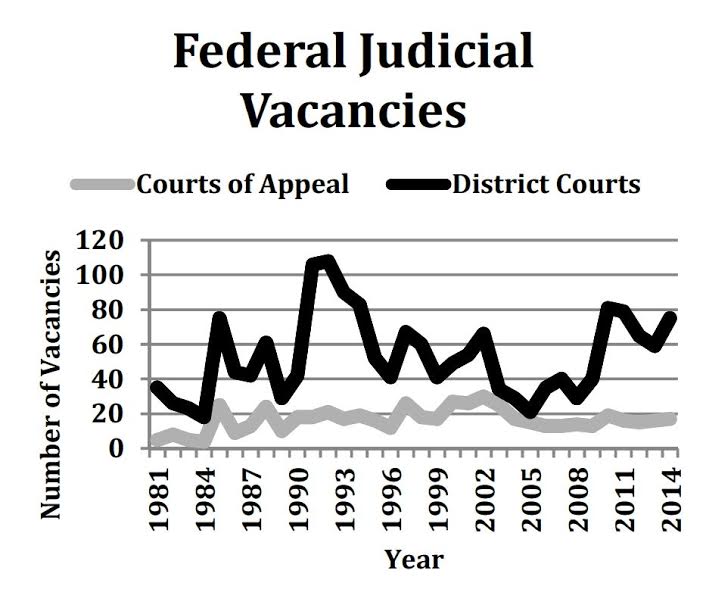We are pleased to present (on our website, having been published previously) Volume 5, Volume 6, and Volume 7.
Category Archives: Uncategorized
Volume 4 – Issue 1
We are pleased to present Volume 4 – Issue 1.
In this issue we have Professor Carole Silver and Mr. Louis Rocconi with a data driven approach to evaluating the value of law school. Professor Nelson Lund shares a few thoughts about changing public opinion and the Second Amendment. Finally, Mr. Tom Cummins has compiled a striking graph comparing the page length of the Code of Federal Regulations and United States Code over time. Enjoy!
Volume 3 – Issue 3
We are pleased to present Volume 3 – Issue 3 (in a much more timely manner than Issue 1). Please note that we did not have an Issue 2 in Volume 3.
In this issue we have a few voices on the counting of Circuit Splits, with Professor Bruhl adding very helpful commentary on a JLM installment, Appellate Review, and the Appellate Review authors updating their methods in response and explaining the new approach to their readers. Enjoy!
Volume 3 – Issue 1 – Full Issue
We are very excited to post the full first issue of Volume 3 (albeit it a little bit delayed). In addition to Professor Wasserman’s exciting Infield Fly Rule article (already posted), the issue also contains a fantastic Supreme Court Sluggers Update about Justice Iredell from Professor Davies.
We also compiled a cover regarding judicial vacancies on the federal bench. Enjoy!
Volume 3 – Issue 1
We are very excited to publish the first article in Volume 3, Issue 1, An Empirical Analysis of the Infield Fly Rule. The rest of the issue should be out soon, so stay tuned!
Volume 2 – Issue 2
Our new issue is complete! Please enjoy the newest content from Volume 2 – Issue 2.
We include an article detailing the give and take of Congress and the Court. Then, we take a look at a continuing JLM theme of legal education with the background of the University of Michigan Student Debt Tool. Finally, Ross Davies provides his annual update to the law review circulation numbers.
Volume 2 – Issue 1
Our new issue is complete! Please enjoy the newest content from Volume 2 – Issue 1.
We first present an explanation of our cover graph on Web 2.0 Citations in Federal Court. Then we provide this year’s updates to the Appellate Review circuit split statistics and the Law School Website Rankings. Finally, please find a new addition to the Slugger’s team, Justice Samuel A. Alito.
Volume 1 – Issue 3
Our new issue is complete! Please enjoy the newest content from Volume 1 – Issue 3.
With our third and final issue of our first volume, we are very excited to publish two new articles. First, we present Law Faculty Blogs and Disruptive Innovation, written by Professor J. Robert Brown, Jr. Second, we are publishing Top Supreme Court Advocates of the Twenty-First Century, by Kedar S. Bhatia. Both of these articles are concise and present a significant amount of data in an easy to digest format. In Law Faculty Blogs, Professor Brown reviews the impact of legal blogs on legal scholarship, legal scholars, and the legal education market. He has run the numbers and presents a forceful argument that blogs have been a disruptive innovation (and we mean that in a good way!) that are not going anywhere. In Top Supreme Court Advocates, Mr. Bhatia seeks to “chronicle the current membership of the elite Supreme Court Bar and analyze its demographic makeup.” During this process he provides a strong case for the importance of this data and the potential for the evolution of the Supreme Court bar in the future.
Volume 1 – Issue 2
Our new issue is complete! Please enjoy the newest content from Volume 1 – Issue 2.
Introduction
We introduce the inaugural issue of the Journal of Legal Metrics. Our aim is to solicit and publish the efforts of scholars whose work demonstrates the explanatory power of numbers and statistics in the legal context. Data challenges the status quo, requiring reconciliation of subjective beliefs with objective measures, and encouraging reexamination of former truths and assumptions. We hope not necessarily to answer the question: “What does the data say?” but rather: “Where is the data in the first place?” Too often commentary surrounding the law is based in opinion, rhetoric, and subjectivity; the foundation of scholarship here is that of numbers and statistics.


